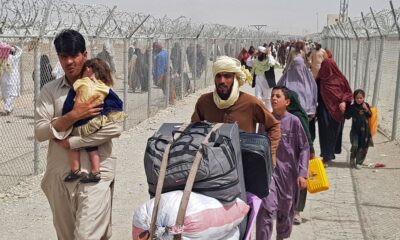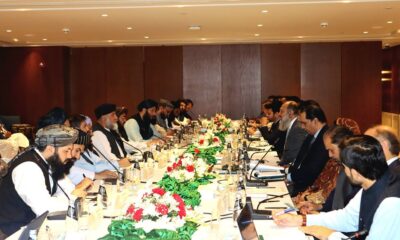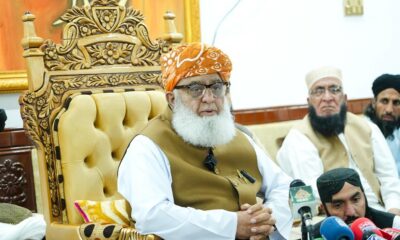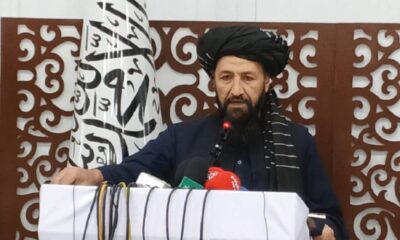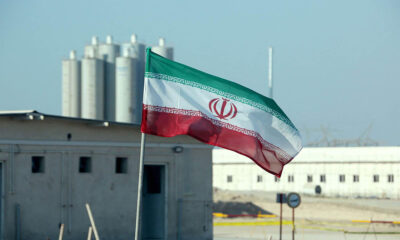Latest News
Kabul University attack is the most ignorant type of war: Afghan Ulema Council
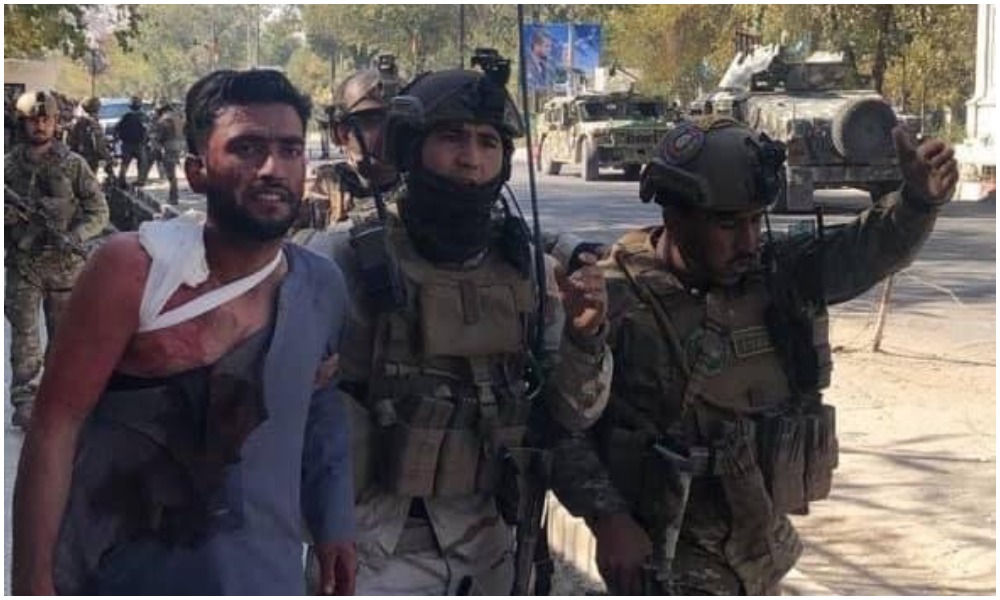
The Ulema Council of Afghanistan on Wednesday condemned Monday’s attack on Kabul University and labelled it as the “most ignorant type of war”.
The council also called on government to immediately lift restrictions on security forces and allow them to take urgent action against the perpetrators.
“It is a shame that the planners of this attack make peace with foreigners, but kill their own people,” said Waiz Zada Behsodi, a religious scholar.
This comes after ISIS (Daesh) gunmen went on a shooting rampage at Kabul University on Monday, killing at least 20 students.
The Taliban immediately distanced itself from the six-hour long siege, which Daesh then claimed responsibility for.
However, a number of officials, including First Vice President Amrullah Saleh have blamed the attack on the Taliban – saying it has the hallmarks of the insurgent group.
Any major attack against a populated city in Afghanistan, by the Taliban, is in contravention of the February deal between the group and the US.
The conditions-based agreement states that the Taliban may not attack major urban areas nor may it attack foreign forces.
It was this agreement that also paved the way for peace talks which started between the Afghan government’s representatives and the Taliban on September 12. However, those talks have all but stalled in recent weeks.
Instead, a marked increase in violence has marred the hoped-for peace landscape in the country.
In a bid to restart talks, members of the Afghan peace talks team met with Sheikh Yusuf al-Qaradawi, chairman of the International Union of Muslim Scholars, on Wednesday and discussed the peace process, the situation in Afghanistan after the signing of the Taliban agreement with the US and the daily sacrifices made by Afghans due to the ongoing war.
During the meeting Sheikh Yusuf al-Qaradawi said that Islam is a religion of unity and brotherhood and that war between Muslims is wrong.
Acknowledging the declaration of the International Union of Islamic Scholars, he advised all parties to exercise flexibility and take steps towards peace.
“The verses of the [Holy] Qur’an have been changed; they [Taliban] are negotiating with foreigners; but they do not make peace with their [own] people,” said Mohammad Qasim Halimi, Afghanistan’s Acting Minister of Hajj and Religious Affairs.
Afghans worldwide were shocked by the brutal attack on students on Monday and large groups have come together in different countries, including Doha, to hold prayer sessions for the victims of the university attack.
In addition, at least 50 countries spoke out against the attack and condemned it in the strongest terms.
Latest News
WATCH: Authorities scramble to accommodate refugee influx at Afghanistan border
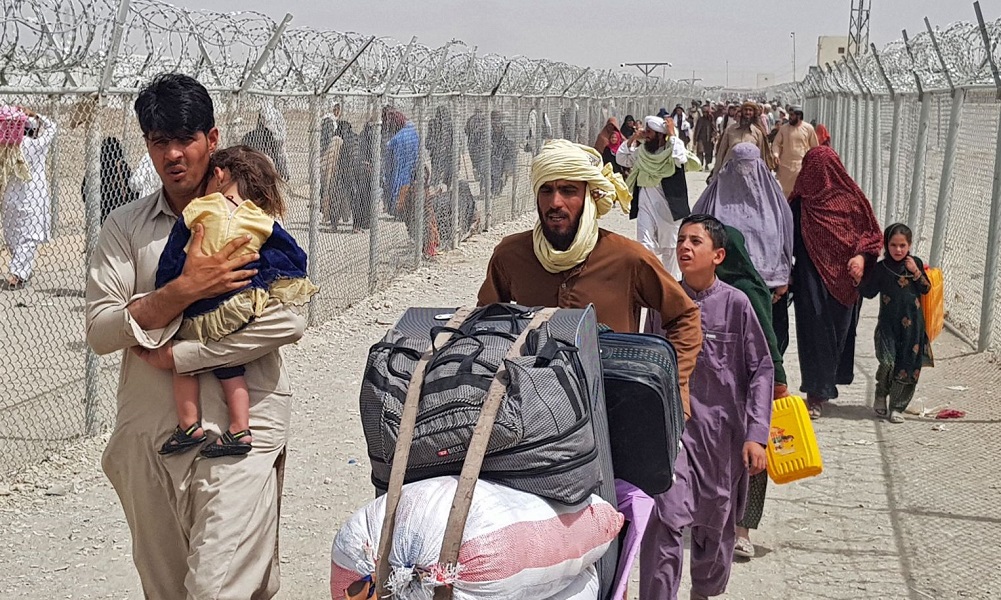
As thousands of refugees cross back into Afghanistan amid Pakistan’s campaign to forcibly expel over 1 million Afghans, local officials scramble to accommodate the influx which also means areas of landmines need to be cleared around the Torkham border area in order to establish more tented camps.
The mines and other unexploded ordnance are remnants of Afghanistan’s 20 year war that ended with the collapse of the former US-backed government in August 2021.
Government officials who visited Torkham this week say they are ready to cooperate with returning refugees.
Nooruddin Torabi, the head of the National Disaster Preparedness Agency, visited Torkham on Tuesday. He stressed the need to clear the area of mines and unexploded ordnance.
Torabi also said that another transit camp would be established to temporarily accommodate the returnees.
Refugees however have slammed the Pakistan government for the way they have handled this. Many say they are now homeless after having left everything behind, including houses, businesses and possessions. In addition to this, a large percentage of them have nowhere to go after having lived in Pakistan for decades.
Afghans have been fleeing to Pakistan for over 40 years – since the invasion of the old Soviet Union in December 1978.
Islamic Relief reported this week that tens of thousands of Afghans are facing dire conditions in makeshift camps after crossing the border from Pakistan.
According to the organization, an assessment team that visited Torkham found that many refugees are arriving in Afghanistan without any shelter, food, cash or water. These families were forced to leave possessions – including animals and household items.
People arrive in droves, covered in dust, crammed onto trucks, and face a barren border with no basic services in sight. The first thing that greets them is a harsh, wind storm swirling with dust.
This influx comes amid an economic crisis in the country and as global cuts to humanitarian funding have forced many essential services in Afghanistan to close, including health facilities and food distributions.
Many of the new arrivals have lived in Pakistan for decades after seeking refuge there, fleeing conflicts and instability in their homeland. They include children who were born in Pakistan and have never been to Afghanistan. Many others no longer have close family members in
Afghanistan or have not visited for many years. They are not truly ‘returning home’ as they hardly know Afghanistan and have no homes or livelihoods to kickstart their lives here.
Some of the arrivals do not even speak an Afghan language and many returnees lack proper identification documents.
The interim Afghan government has pledged to take care of refugees returning to Afghanistan and humanitarian organizations are ramping up efforts to help these refugees.
Pakistan last month set an early April deadline for some 800,000 Afghans carrying Afghan Citizen Cards (ACC) issued by the Pakistani authorities to leave the country, in the second phase of efforts to remove Afghans. More than 1.3 million Afghans who hold Proof of Registration cards from the UN refugee agency, UNHCR, have also been told to move outside the capital Islamabad and the neighbouring city of Rawalpindi
Latest News
Afghan, Pakistani commerce minister meet in Islamabad to discuss trade
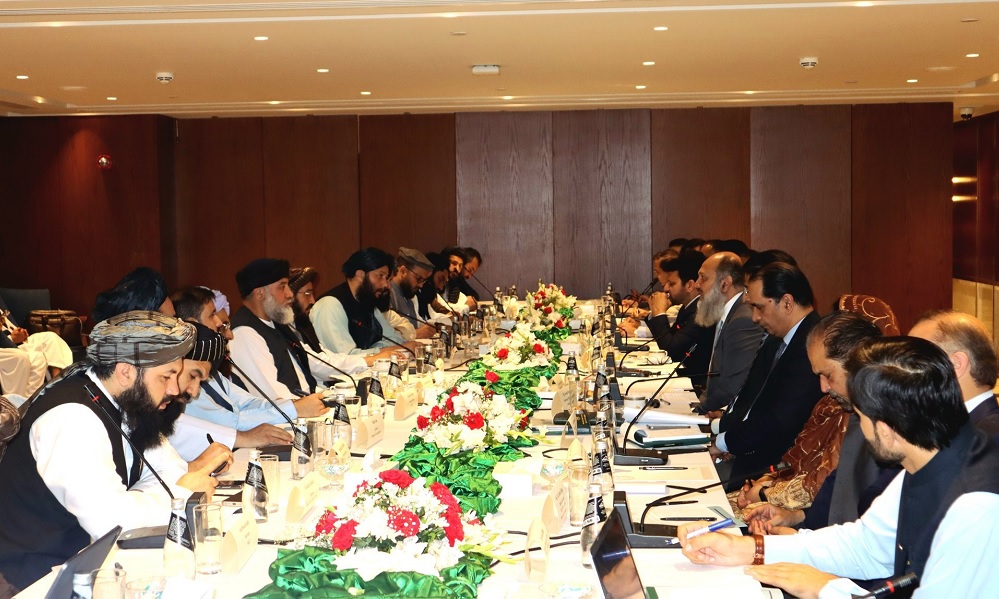
Afghanistan’s Acting Minister of Industry and Commerce Nooruddin Azizi met with his Pakistani counterpart Jam Kamal Khan, discussing bilateral trade, transit and other issues of mutual interest, it was announced on Thursday.
Separate meetings between the technical teams of both sides are also expected to be held for further discussions to find proper solutions for existing challenges and boost the bilateral trade, Afghanistan’s embassy in Islamabad said in a statement.
In a separate statement, Afghanistan’s Ministry of Industry and Commerce said that the meeting discussed extension of APTA trade agreement, transit facilities, prevention of smuggling of goods, coal exports, round-the-clock operations at Torkham crossing, possibility of bilateral trade through Ghulam Khan port, movement of trucks between the two countries, bank guarantee and creating a comprehensive mechanism for the management of ports.
Latest News
Islamabad ‘unhappy about something else’, but taking revenge on Afghan refugees: Fazl-ur-Rehman
He wondered why Pakistan was made to suffer from such “blind decisions”.
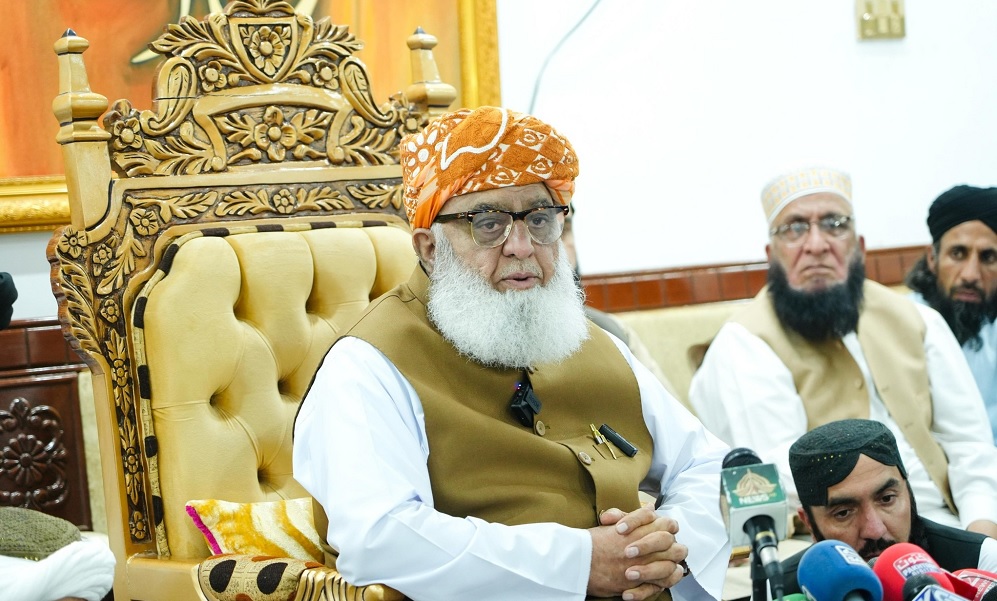
Pakistan’s Jamiat Ulema-i-Islam-F chief Maulana Fazl-ur-Rehman on Wednesday declared the forced deportation of Afghan nationals from Pakistan a violation of their human rights and urged international community and human rights organisations to take notice of it.
“Pakistani authorities are trampling on the human rights of Afghan refugees by hauling them like chattels in vehicles. Islamabad is unhappy over something else but taking revenge on Afghan refugees. This is a sentimental type of decision,” the JUI-F chief told a news conference in Peshawar, Dawn newspaper reported.
He said that Afghan professionals like doctors, engineers and others should have been adjusted here and should not be forced to leave the country.
The JUI-F chief said that expulsion of investors and businessmen who were doing business in Pakistan would also have economic consequences.
He wondered why Pakistan was made to suffer from such “blind decisions”.
“Pakistan’s interest should be kept in mind while making decisions,” he said.
Fazl said that students who were enrolled in Pakistan should also not be expelled and as forcing them out leaves them nowhere.
He said that education was one of the basic human rights and denying it was trampling on human rights.
Regarding the rest of the refugees, the JUI-F chief said that it was an issue between both countries and Pakistan had previously happily accepted Afghan nationals on its soil.
He said that hospitality was a part of Pashtun code.
“It’s imprudent to kick Afghans out of the country after hosting them for 45 years. Both countries should sit together and devise mechanisms for the repatriation of the Afghans,” he said.
Fazl said that unilateral expulsion of Afghan refugees not only violated human rights but also brought bad name to Pakistan.
-
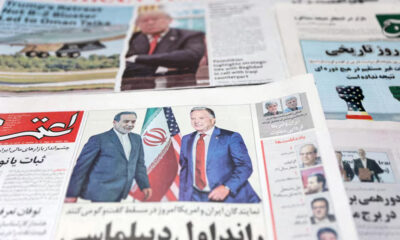
 Regional4 days ago
Regional4 days agoIran, US hold ‘positive’ talks in Oman, agree to resume next week
-
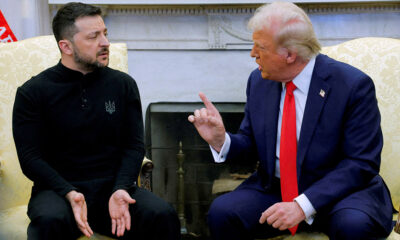
 World4 days ago
World4 days agoTrump says Ukraine talks may be going OK, but there is a time ‘to put up or shut up’
-
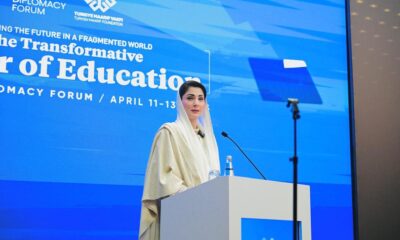
 Latest News4 days ago
Latest News4 days agoPakistan’s Punjab CM calls for ‘human response’ to Afghan girls’ education ban
-

 Regional3 days ago
Regional3 days agoSaudi Arabia plans to pay off Syria’s World Bank debts – Reuters
-

 Latest News4 days ago
Latest News4 days ago6.1-magnitude earthquake shakes northern Afghanistan
-
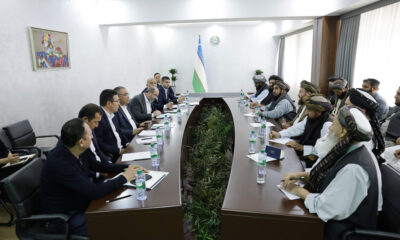
 Latest News3 days ago
Latest News3 days agoAfghanistan and Uzbekistan to expand cooperation in agriculture sector
-
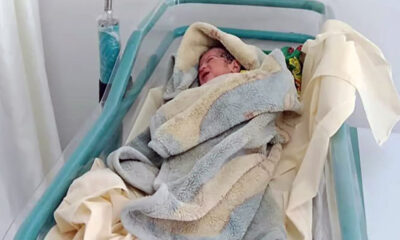
 Latest News2 days ago
Latest News2 days ago17 babies born at Torkham refugee centers in past two weeks
-

 World2 days ago
World2 days agoTrump says Iran must give up dream of nuclear weapon or face harsh response


